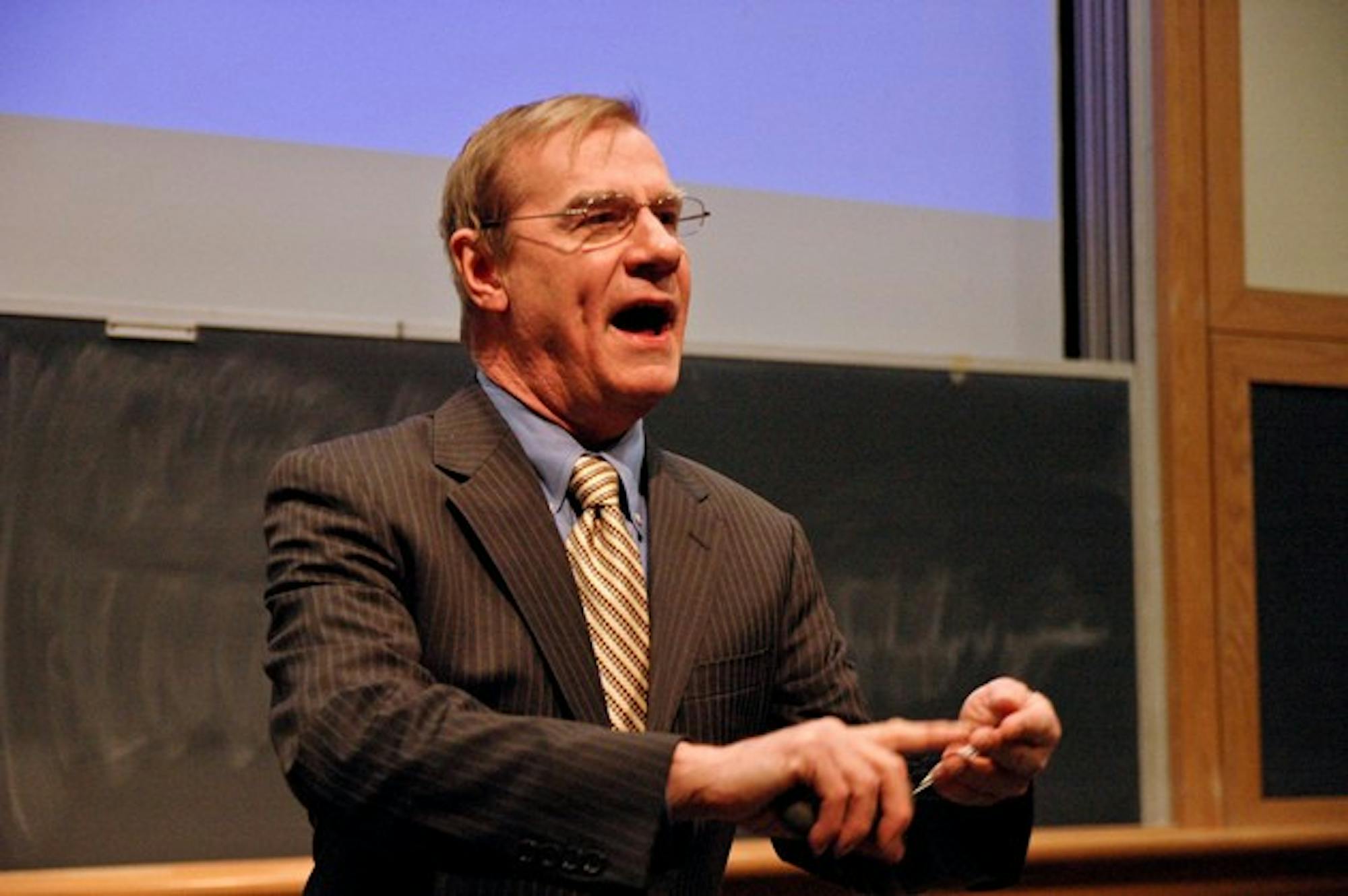"The discussion surrounding global warming has become wildly extreme," he told a packed auditorium. "You either believe it's the end of the world unless we do something about it right now, or you're a denier."
Michaels criticized scientists' widespread acceptance of the computer climate change models, saying that the models have projected higher temperatures than have actually occurred in recent years.
"[There is a] systematic failure of computer models," he said. "What warming there is, is at or below the lower limits of computer models."
Prevalent claims that global warming is occurring at an ever increasing rate are troubling, Michaels said. Charts of recent temperatures show constant, linear warming, he said.
Scientific literature, which Michaels said should present an equal distribution of positive and negative conclusions about climate change trends, is overwhelmingly pessimistic, Michaels said. This phenomenon can be partially attributed to the "small inbred community" of scientists who peer review global warming research, he said.
There is also evidence that individuals, societies and economies can adapt to warmer temperatures, Michaels said.
Agricultural adaptations may allow corn to grow at higher temperatures, he said, while crops like soybeans and sugar cane thrive in a hotter climate. When heat waves occur with higher and higher frequency, there are fewer deaths during subsequent bouts of high temperature, he added.
Current means of addressing warming may exacerbate the extent of the climate problem, Michaels said. Cap-and-trade systems and energy taxes take money out of the hands of investors and drain capital from companies that could produce innovative technologies, he said.
"I will leave you with one observation: the future belongs to the efficient," he said. "You need capital to reach that future."
As Michaels fielded questions from the audience, arguments broke out among various students.
Matthew Dahlhausen '11, a member of the Environmental Conservation Organization, encouraged student environmentalists to attend the event in a campus-wide e-mail, he said. Before the lecture began, Dahlhausen handed out sheets criticizing some of Michaels's key points. The handout encouraged audience members to "shake [Michaels] up a bit."
Dahlhausen engaged in a lively debate with Michaels after the formal question-and-answer session, highlighting alternative evidence and theories about climate change.
"[Michaels is] often thought to hold equal ground with climate scientists, but he doesn't," Dahlhausen said. "He's really an outsider."
Michaels's theories are not widely supported, Stephen Schneider, professor of biology and co-director or the Center for Environmental Science and Policy at Stanford University, said in an interview with The Dartmouth. Schneider compared Michaels and the other climatologists who share his views to the tobacco industry, saying that they seek to alter the trajectory of political and scientific progress.
"It is completely illegitimate for somebody like Pat Michaels to [look at] speculative evidence with competing explanations and say it's not proved," he said. "Science isn't bipolar. Science deals with degrees of truth."
Michaels, in an interview with The Dartmouth after his lecture, acknowledged such criticism, saying, "that's the usual reception I get at universities."
Michaels' visit to campus was sponsored by the College Libertarians and was funded by the Charles G. Koch Foundation and the Rockefeller Center. Peter Osorio '12, vice executive of the College Libertarians and organizer of the event, said he wanted to bring Michaels to campus to discuss solutions to global warming.
"We need the most efficient means to [solve global warming], which is through free market spending," he said. "Government spending won't help."




